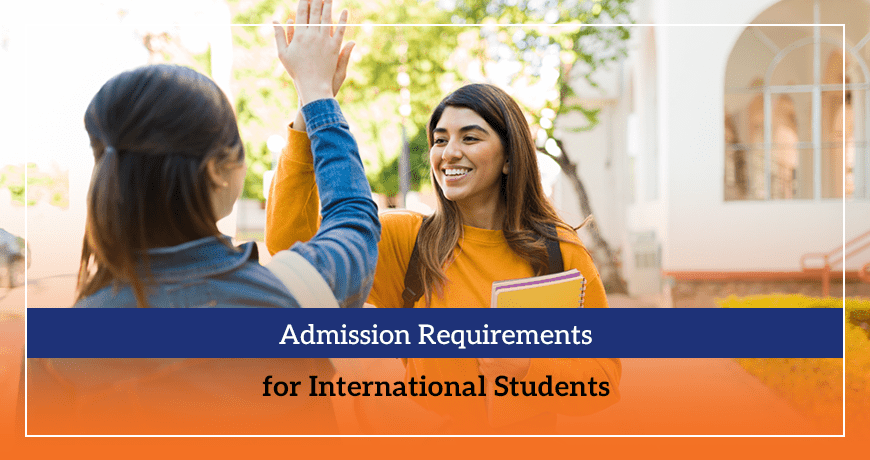

Dr Mohammad Shafiq
Vocational courses in UK for international students are a wise investment for their future. These are education and training programs that prepare students for specific careers or trades. Vocational courses are shorter and more focused than traditional academic degrees, and they often include a significant amount of hands-on training.
Vocational courses offer several unique benefits and importance for international students in the UK. They offer improved job prospects, higher earning potential, the opportunity to gain work experience, and certain immigration benefits. Let’s dive deeper and learn about it in detail.
Vocational courses are educational programs that are designed for specific careers or trades. They typically focus on practical skills and knowledge rather than theoretical or academic concepts. Vocational courses are offered at various levels, from secondary school to postgraduate.
Some of the key characteristics of vocational courses include:
There are several distinctions between vocational courses and academic courses. Academic courses typically prepare students for further study at the university level. They focus on theoretical and academic concepts rather than practical skills and knowledge. Academic courses may also include research projects and essays.
The following table summarizes the key distinction between vocational and academic courses:
|
Characteristic |
Vocational Courses |
Academic Courses |
|
Focus of curriculum |
Practical skills |
Theoretical concepts |
|
Duration |
Shorter |
Longer |
|
Alignment with industry |
Closely aligned |
Less closely aligned |
|
Examples |
Car mechanic training, nursing course, electrician apprenticeship |
English literature degree, mathematics degree, history degree |

One of the most significant benefits of vocational courses for international students is the opportunity to develop practical skills highly demanded by employers in the UK. Vocational courses typically focus on hands-on training and real-world applications, giving students the skills they need to succeed in their chosen careers.
Vocational courses are also career-focused. It can be a significant advantage for international students starting their careers in a new country. By completing a vocational course, international students will gain the right skill set they need to be competitive in the job market and find employment in their chosen field.
Graduates of vocational courses are highly sought-after by employers. This is because they have the practical skills and knowledge that employers seek. So, international students who graduate from vocational courses are more likely to find jobs and earn higher salaries.
Many vocational courses offer students the opportunity to gain work experience through internships or apprenticeships. It allows students to build relationships with potential employers and learn more about the industry they are interested in. Moreover, many of these courses partner with industry organizations, providing students access to networking opportunities and career resources.
Engineering and technology vocational courses are in high demand in the UK, and international students with these skills are highly sought-after by employers. Some popular vocational courses in this category include:
Business and management courses give students the skills and knowledge they need to succeed in various business settings. Some popular vocational courses in this category include:
Health and social care courses prepare students for careers in the healthcare and social services sectors. Some popular vocational courses in this category include:
Read Also: Statement of Purpose For Nursing (SOP for Nursing)
Creative arts and design courses develop students' creative and artistic skills. Some popular vocational courses in this category include:
Hospitality and tourism courses prepare students for careers in the hospitality and tourism industry. Some popular vocational courses in this category include:

All international students who apply to study vocational education in the UK must demonstrate their English language proficiency. It can be done by passing an approved English language test, like the IELTS or TOEFL. The specific English language requirements will vary based on the course and institution to which you are applying.
International students must also meet the academic qualifications required for admission to their chosen course. These qualifications vary depending on the course and the institution. However, most vocational courses require students to have a minimum of five GCSEs, including English and mathematics. Some courses may also require students to have specific A-levels or BTECs.
International students have to apply for a student visa to study in the UK. The requirements will vary based on your nationality and the length of your course. You’ll find more information on the UK government website.
Here is a list of some of the top UK universities offering vocational courses:

The UK government offers many scholarships to international students, including:
Many universities in the UK offer their own scholarships to international students. These scholarships can be partial or full and are offered based on academic merit, financial need, or other criteria.
To find out about university-specific scholarships, you should contact the universities to which you are applying. You can also search for scholarships on our website.
In addition to government and university-specific scholarships, several external organizations offer funding to international students studying in the UK. These organizations include:
Many UK universities offer pre-arrival support to international students. This support may include:
UK universities and educational institutions offer a range of academic support services to international students, including:
UK universities offer a range of career services and internship placement support to international students, including:
UK universities offer a range of cultural and social integration support to international students, including:

International students can do part-time jobs during their studies, up to 20 hours per week during term time, and full-time during the holidays. There are a variety of part-time jobs available to international students, including:
International students will have an opportunity for a post-study work visa after graduation. This visa allows them to stay in the UK for up to two years after graduation to work or look for work.
To be eligible for a post-study work visa, you must have completed a full-time degree from a recognized UK university. You must also have met the English language requirements for the visa.
The Graduate Entrepreneur Visa is a new visa that was introduced in 2022. It allows international students who have graduated from a UK university to stay in the UK for up to two years after graduation to start or run a business. To be eligible for a Graduate Entrepreneur Visa, you must have an innovative business idea with the potential to create jobs in the UK.
Cultural adjustment is one of the biggest challenges that international students face. Here are some tips for coping with it:
Another major challenge that international students face is the language barrier. The following are some tips for overcoming the language barrier:
Financial management can be a challenge for international students, especially if they are on a tight budget. Here are some tips for managing your finances as an international student in the UK:
Building a professional network is essential for all students, but it can be especially important for international students. The following are some tips for building a professional network in the UK:
If you are an international student interested in developing practical skills for a specific career, then vocational courses in the UK for international students may be the right choice. Vocational courses will help you achieve your desired career goals more quickly and enhance employability.

November 19 2024

November 17 2024

November 13 2024
Author: Dr Mohammad Shafiq
Business Study is undoubtedly a popular subject worldwide. Studying it in the UK makes it even better. The UK’s business schools have always had... Read More
Author: Dr Mohammad Shafiq
Thinking about doing an MS in the USA? It’s a popular choice for students worldwide. The country is home to some of the best institutes worldwid... Read More
Author: Dr Mohammad Shafiq
Are you an international student or professional eyeing a permanent residency (PR) visa in New Zealand? If so, choosing the right course can significa... Read More